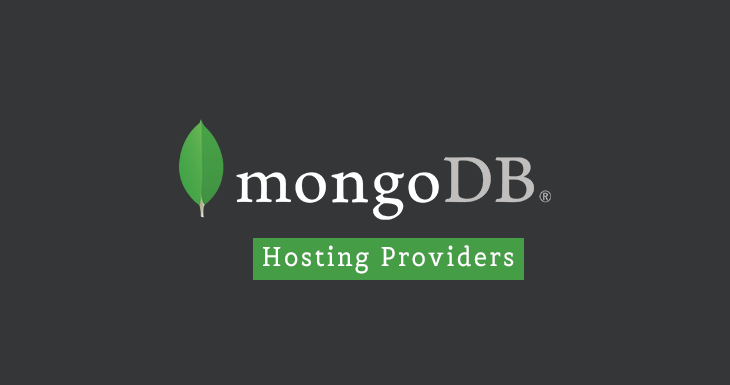Table of contents of the article:
In a data-driven age, choosing the right database can mean the difference between project success or failure. MongoDB emerges as a powerful, flexible and scalable NoSQL solution. In this post, we'll walk you through the world of MongoDB, its history, key features, and advantages over relational databases. We will also introduce you to our specific MongoDB hosting service, a complete solution to better manage your database.
What is MongoDB?
MongoDB is an open source document-oriented NoSQL database. Unlike traditional relational databases, MongoDB uses JSON format documents for data storage, allowing for greater flexibility and scalability. It offers a rich and naturally expressive data model, perfect for applications that require speed and agility.
The History of MongoDB
MongoDB is a name that resonates strongly in the database world. Despite its relative youth compared to other database management systems, it quickly gained popularity and established itself as one of the most widely used NoSQL databases. But how did this revolutionary technology come about? Here is a brief history of MongoDB.
The Origins: 10gen and the idea of a Cloud Service

MongoDB began in 2007, not as a database, but as a component of a cloud-based product called "10gen". This platform, developed by Dwight Merriman and Eliot Horowitz, two technology industry veterans, was intended to provide a complete technology stack as a service. However, during the development of 10gen, the co-founders realized that traditional relational databases were not able to answer their needs. They needed a database system that was scalable, flexible, and capable of handling large amounts of data. This need led them to create MongoDB.
The Emergence of MongoDB: A New Approach to Databases
In 2009, 10gen decided to focus solely on developing their new database and making it open source. Thus was born MongoDB, a document-oriented database that stands out for its scalability and flexibility. The name "MongoDB" comes from the English term "humongous", which reflects the project's goal to manage huge amounts of data.
Rapid Growth and Popularity in the NoSQL World
Since going open source, MongoDB has seen impressive growth. Over the years, it has attracted more and more developers and organizations due to its ability to handle large volumes of structured and unstructured data, its horizontal scalability, and its robust replication and sharding capabilities. Today, MongoDB is one of the most popular NoSQL databases used by many large companies around the world.
What does NoSQL mean?
NoSQL, short for “Not Only SQL,” is a term that encompasses a variety of database technologies designed to address challenges that traditional relational databases find difficult to handle. NoSQL is not a specific product, but rather a concept that encompasses a set of different technologies, each of which is designed to solve specific problems or data needs.

NoSQL databases were born to address the need to handle huge volumes of structured, semi-structured and unstructured data – a challenge that relational databases find difficult to address. They do not follow the traditional SQL relational model, which is based on tables, rows and columns.
NoSQL technologies are designed to be scalable, resilient, and capable of handling large amounts of distributed data. They are especially suited for real-time applications and workloads that require elastic scalability.
NoSQL database categories
NoSQL technologies can be divided into four main categories:
- Document oriented databases: These databases, including MongoDB, store data in documents, typically in JSON format. They are great for semi-structured data and allow for more flexibility, as data can be stored with variable structure.
- Key-value database: These databases use a simple key-value model for data storage. They are ideal for schema-free data, and are particularly strong in read and write operations. Examples of these databases include Redis and DynamoDB.
- Graph oriented databases: These databases, like Neo4j, are designed to handle data with complex relationships. They are ideal for relationship analysis, pattern detection and product recommendation.
- Column database: These databases, like Cassandra, store data in columns instead of rows. This makes them well-suited for large-scale operations and data analytics.
Each NoSQL database type has its strengths and weaknesses, and choosing which database type to use will largely depend on the specific requirements of your project. But what all NoSQL databases have in common is their ability to handle large amounts of data efficiently, scale out, and provide a flexible data structure, which are vital in the age of big data.
The Advantages of MongoDB over Relational Databases
Relational databases, like MySQL, have dominated the database landscape for decades. These systems, based on a rigid schema of tables, rows and columns, are excellent for managing structured data. However, with the emergence of new types of applications and data, relational databases can face several challenges. That's where MongoDB, a document-oriented NoSQL database, truly shines. Let's dive into the distinctive benefits of MongoDB in detail.
Superior scalability
Scalability is one of the main advantages of MongoDB over relational databases. Relational databases scale up, which means that to handle a higher load, more computing power (CPU, RAM) needs to be added to the existing server. This approach has physical limitations and can get expensive.
On the other hand, MongoDB is designed to scale out. This means that more servers can be added to the DB cluster to handle growing data volumes. This horizontal scaling, or sharding, allows MongoDB to easily handle petabytes of data spread across several servers, making it an excellent option for data-intensive applications.
Scheme flexibility
Another big advantage of MongoDB is its schema flexibility. Unlike relational databases, MongoDB doesn't require a fixed schema. This means that it is possible to enter new data or change the structure of existing data without having to restructure or modify the entire database.
This flexibility allows data to evolve over time, based on the needs of the application, without having to go through costly data migration processes. This makes it ideal for agile applications where requirements can change rapidly.
High Availability
Data availability is a critical concern for many applications. MongoDB ensures high data availability using a set replication model. This model maintains multiple copies of the data spread across different servers.
In the event of a server failure, the system automatically switches to another node in the replica set, thus ensuring that data is always available. This is especially useful for applications that require high uptime and can't afford downtime.
Optimized for Big Data
MongoDB was designed from the ground up to handle huge volumes of data. Thanks to its ability to scale out, MongoDB can easily handle big data, making it an excellent choice for real-time data analytics applications.
Additionally, MongoDB supports a variety of data types, including geospatial, temporal, and textual data. This, together with the ability to perform complex queries and aggregation operations, makes it a powerful tool for big data processing and analysis.
In conclusion, while relational databases like MySQL have their place, MongoDB offers significant advantages in terms of scalability, flexibility, availability and management of big data. These benefits make it an excellent choice for a wide range of modern applications.
MongoDB Features
MongoDB, thanks to its flexibility, its ability to scale, and its advanced query capabilities, is an excellent choice for a wide variety of applications. But these aren't the only features that make MongoDB so appealing to developers and businesses. Here's a detailed breakdown of MongoDB's main features.
Native Support for Data Distribution
One of MongoDB's main strengths is its native support for data distribution. This means that MongoDB can distribute data across multiple servers, making it easy to handle large amounts of data and intensive workloads. Additionally, MongoDB automatically supports data replication, ensuring that information is always available and that data is never lost due to server failure.
Horizontal Scalability
While many databases rely on scaling up (adding more power to a single server), MongoDB is designed to scale out. This means it can handle an increased workload by adding more servers to the network, rather than increasing the capacity of a single server. This horizontal scalability allows MongoDB to handle huge volumes of data, making it an excellent choice for data-intensive applications.
Data Schema Flexibility
Another distinctive aspect of MongoDB is its data schema flexibility. Unlike relational databases, which require a fixed data schema, MongoDB allows you to change the data schema without having to restructure the entire database. This flexibility allows data to evolve over time, based on the needs of the application. Additionally, MongoDB supports a wide range of data types, allowing you to manage structured, semi-structured, and unstructured data.
Complex Queries and Aggregation Features
MongoDB offers a powerful query system that allows you to perform complex searching, filtering, and sorting of data. Additionally, MongoDB supports advanced aggregation features, such as data aggregation, mapping, and reduction, which allow you to perform complex analyzes and extract meaningful insights from your data.
ACID transactions
Despite being a NoSQL database, MongoDB supports ACID (Atomicity, Consistency, Isolation, Durability) transactions, a set of properties that ensure that database transactions are processed reliably. This means that even in the event of a system crash or software failure, MongoDB transactions will always complete successfully, with no data loss or corruption.
These features make MongoDB an excellent option for a wide variety of applications, from high-level web applications, to content management systems, to data analytics platforms. If you need a database that can handle large amounts of data, scale efficiently, and offer flexibility and powerful query capabilities, MongoDB could be the ideal solution for you.
Our Specific Hosting for MongoDB
We understand how challenging managing a MongoDB database can be, especially as data sizes grow and application needs become more complex. For these very reasons, we offer a hosting service specifically designed for MongoDB. Not only does this service make managing your database easier, but it also offers you a number of advanced features that will help you make the most of MongoDB.
Activation on Every Server
Our MongoDB hosting service can be activated on any server. Whether you're using a dedicated server, cloud server, or server cluster, we can set up a MongoDB instance out of the box. Our team of experts will be on hand to guide you through the setup process and to make sure your database is optimized for your specific needs.
Scheduled Backup
To ensure the security of your data, our MongoDB hosting service includes a scheduled backup service. This means that your data will automatically be copied and archived at regular intervals. In the event of a system crash or data loss, you can easily restore your data from the latest backup. This gives you extra peace of mind, knowing your data is always safe.
Advanced Monitoring
Managing a MongoDB database requires continuous supervision of its performance. For this reason, our hosting service includes an advanced monitoring system. This system allows you to monitor your database performance in real time, including server load, memory usage, query activity, and more. This information will help you identify any performance issues early and tune your database to run optimally.
Specialized Technical Support
In addition to the features mentioned above, our MongoDB hosting service also includes specialized technical support. Our team of MongoDB experts are always ready to assist you with any problems you may encounter, from database setup to performance tuning. You can count on us to help you make the most of MongoDB.
Whether you're just getting started with MongoDB or you're already managing a large database, our hosting service will help you get the most out of MongoDB.
Are you looking for MongoDB Hosting?
If you are looking for MongoDB hosting with system assistance, you are in the right place. Our dedicated MongoDB hosting service gives you everything you need to better manage your database.
Don't let managing your database distract you from your main goal: growing your business. Let us take care of your MongoDB. Contact us today and find out how our dedicated MongoDB hosting service can make a difference to your project.
